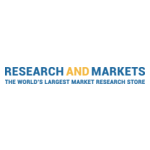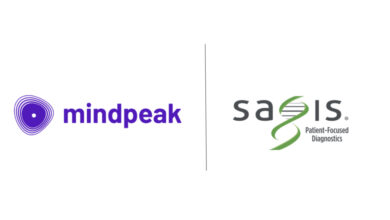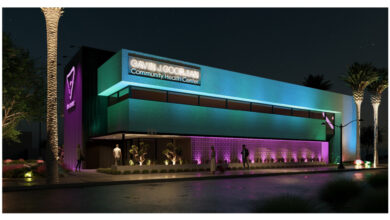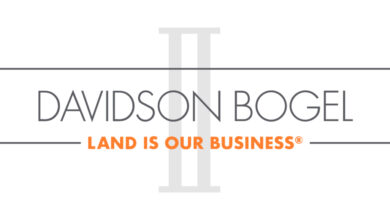Global Autoinjectors Market (2021 to 2035) – by Type of Autoinjector, Route of Administration, Type of Molecule, Therapeutic Indication and Geography – ResearchAndMarkets.com

DUBLIN–(BUSINESS WIRE)–The “Global Autoinjectors Market by Type of Autoinjector, Route of Administration, Type of Molecule, Therapeutic Indication and Geography: Industry Trends and Global Forecasts, 2021-2035” report has been added to ResearchAndMarkets.com’s offering.
This report features an extensive study of the current market landscape, offering an informed opinion on the likely adoption of autoinjectors till 2035. The report features an in-depth analysis, highlighting the diverse capabilities of stakeholders engaged in this domain.
According to the National Health Interview Survey (NHIS), nearly 52% of the adult population in the US is diagnosed with at least one chronic condition, such as asthma, diabetes, and hypertension. The annual cost burden associated with chronic disorders in the US is around USD 3.7 trillion; this accounts for nearly 20% of the country’s GDP share.
A major share of expenses incurred by patients living with a chronic disorder is driven by the frequent need to medicate, which may require repeated visits to hospitals/out-patient clinics. In addition, patient compliance and adherence to the treatment regimen prove to be a challenge. In order to mitigate this challenge, a wide variety of self-administering injectable drugs have been developed, which impart greater independence and psychological benefits to the patients, as compared to drug administration by healthcare professionals.
Amongst the various self-injection devices, autoinjectors have steadily gained prominence, especially for the treatment of emergency and chronic conditions, such as anaphylactic shock and rheumatoid arthritis. The additional features of autoinjectors, such as integrated needle safety, Bluetooth connectivity, and monitoring injection dose history, enable them to resolve several injection-related compliance issues faced by the patients.
Given the inherent benefits of autoinjectors, a number of players have launched their proprietary products in combination with autoinjectors for use across a wide array of disease indications. One of the most widely recognized autoinjector in the market is EpiPen (Mylan), which is a prefilled epinephrine autoinjector. The generic version of EpiPen received the FDA approval in 2018. Notable examples of other autoinjector-based combination products include Fasenra Pen (AstraZeneca), Gvoke Hypopen (Xeris Pharmaceuticals), NUCALA Autoinjector (GlaxoSmithKline), and VyleesiT Autoinjector (AMAG Pharmaceuticals/Palatin Technologies).
Apart from being a patient-friendly alternative to conventional drug delivery methods, autoinjectors also serve as potential life cycle management tools; several pharmaceutical players have reformulated their proprietary drugs as autoinjector combination products to expand market exclusivity period. For instance, Amgen reformulated lyophilized Enbrel for delivery via the SureClick autoinjector to extend the patent protection of the drug by almost 11 years.
Further, it is worth mentioning that several autoinjector developers have made significant efforts in developing novel autoinjector technologies, paving the way for new generation of autoinjector devices. The field is presently witnessing several innovations, such as LED/LCD-based visualization, Bluetooth connectivity, dosage recording, safety lock, visual/audible drug delivery confirmation notifications, and automatic drug reconstitution. In this context, it is worth highlighting that nearly 5,000 patents have been filed/granted, since 2015, for autoinjectors and affiliated products/technologies. We believe that such efforts are likely to drive growth in this market over the coming years.
Key Questions Answered
- Who are the leading autoinjector device developers?
- For which disease indications are autoinjector-based combination products available?
- Which partnership models are commonly adopted by stakeholders developing autoinjectors?
- Which drug candidates are likely to be considered for administration via autoinjectors?
- How has the intellectual property landscape of autoinjectors evolved over the years?
- Who are the Key Opinion Leaders across different regions of the world?
- Who are the leading contract manufacturing organizations providing services for autoinjector devices?
- What is the share of autoinjector devices, in terms of revenue generation potential, across different disease markets?
- How is the current and future opportunity likely to be distributed across key market segments?
Companies Mentioned
- AbbVie
- Aktiv Pharma Group
- ALK-Abello
- Allergy Therapeutics
- Alvogen
- Alvotech
- AMAG Pharmaceuticals
- Amgen
- Amneal Pharmaceuticals
- Amphastar Pharmaceuticals
- Androsystems
- Antares Pharma
- Aptar
- Asahi Kasei Pharma
- Ascendis Pharma
- AstraZeneca
- Battelle
- Bayer
- Becton Dickinson
- Bespak (acquired by Recipharm)
- Biocorp
- Biogen
- BioGene Pharmaceutical
- Boehringer Ingelheim
- Bristol-Myers Squibb
- Cambridge Consultants
- Celltrion
- ChemProtect.SK
- Chugai Pharmaceutical
- CinnaGen
- Creare
- Crossject
- DALI Medical Devices
- Dr. Reddy’s Laboratories
- Duoject Medical Systems
- Elcam Medical
- Eli Lilly
- And Many More Companies!
For more information about this report visit https://www.researchandmarkets.com/r/jhbqwf
Contacts
ResearchAndMarkets.com
Laura Wood, Senior Press Manager
[email protected]
For E.S.T Office Hours Call 1-917-300-0470
For U.S./CAN Toll Free Call 1-800-526-8630
For GMT Office Hours Call +353-1-416-8900



